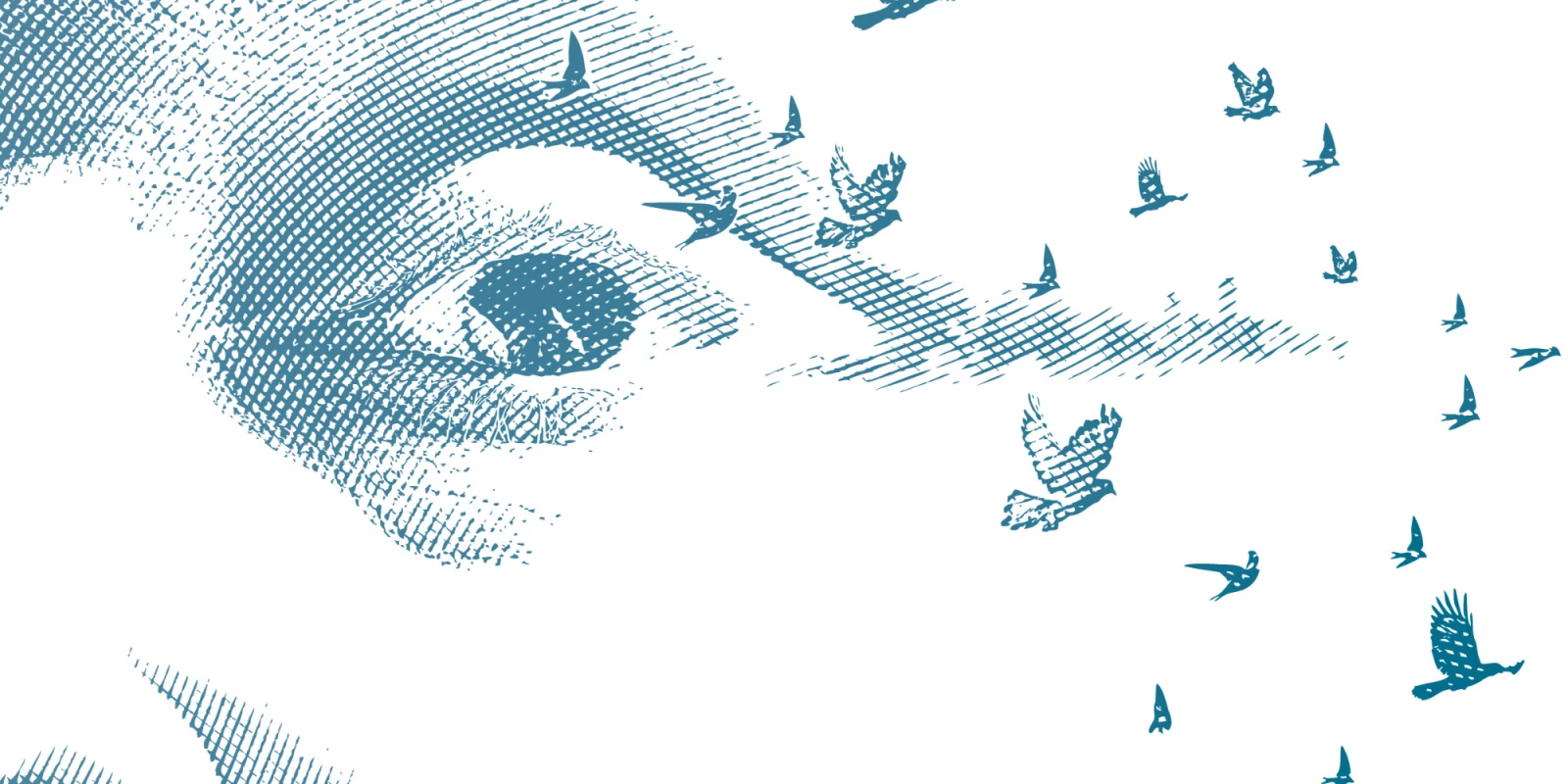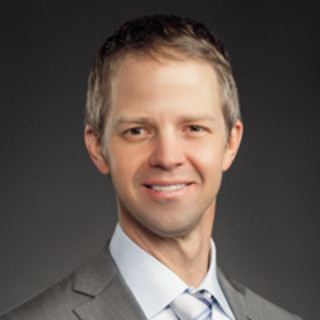
This is part of the Medical Humanities Series on Op-Med, which showcases creative work by our members. Do you have a poem, short story, creative nonfiction or visual art piece related to medicine that you’d like to share with the community? Send it to us here.
I walk into the dictation room after the last case. I look at my watch tied to my scrubs. My flight is in a few hours. No problem.
A sticky note on the desk says: “Can you convert the order in the computer to inpatient from observation status for room 103B
since they are staying another night? Thx!”
I stick it to the computer screen. I log in. I open the EMR, then the dictation app, I load the template for the operative report and start to dictate. Better to do this now before I forget.
“Preoperative Diagnosis – Left knee….”
A head emerges in the door frame.
“Oh good, you are out. The patient from earlier is ready to leave and wants to talk to you before they discharge. They are just waiting on you.”
I get up and talk to the patient again. It’s easy because I had already spoke to them before I went in to the last case, but they did not remember because…. drugs. No problem.
Head back to the dictation room. Arrive. The light on the phone is flashing. The voice of the PACU clerk echoes from somewhere behind me.
“The floor is calling; they have some questions about the post-op patient in 106.”
Yes. Tylenol is fine. And Docusate. And Miralax. And Benadryl. Did I really write for none of this? Never mind. All good.
Sitting at the desk now. The computer has timed out. The light is flashing again. Why is it orange? Why not something less foreboding. The voice is back.
“The clinic is calling and they need you to see someone up there before you leave, the patient is up there waiting on you.”
Best not to leave the patient waiting. I walk down the hall. My cell phone rings.
The voice says, “You forgot to sign the post-operative opioids for the last patient. They can’t go home until you send those meds.”
That is true. Back to the computer. Log in. Sign order. Open my phone and access the program that creates the randomly generated authentication number. Sometimes I like to imagine this is the code to a nuclear warhead launch. It feels that way. Something powerful and gratifying about typing the secret code. Oh! Wait. Check mandatory statewide database to ensure the
patient is not receiving other opioids from other prescribers. Open browser. Tap on shortcut tab. Good. Not doctor shopping. Just in pain. All better now.
Operative note is now open but dictaphone has logged out. Hmm. Can dictate later. Was it a left knee or a right? I try to see it in my mind, prepped and draped and ready for surgery, could be either. Briefly wish that I operated on abdomens or chests.
Walk back down the hall. Say hi to the guy cleaning the floors. He’s working methodically back and forth over the hallway. Love that guy. The floors look great. Spotless.
* * * * * * * * * * * *
A few hours later I drive to the airport, ride a bus, then a people mover (love those too) then a train, a plane, then another train, a light rail, and finally an Uber. I’m in a different city, it’s dark and raining. I realize I never ate dinner. I set the bags down. I smell like the recycled air from the plane.
I’m sitting in a large soft chair, lime green, in a quiet little house on a quiet street not far from where I used to live.
I try to think but it’s like the weather - too cloudy. There are things to do before bed, but what were they? The flywheel spins but fails to engage anything. I just stare out the window awhile. There is an old tree covered in moss. It occurs to me that the tree is dead. And suddenly I remember something.
I wonder if this is what it’s like. If this feeling is dementia. A cataract of the mind. The lens clouding so slowly that you don’t notice it at first, if it happens by degrees.
* * * * * * * * * * * *
I’m sitting on a chair again and it’s dark, but it’s summertime. The doors are open, it’s warm on the skin. My fingers are sticky from the lemonade that spilled over the outside of the cup. They look a little dirty, leaving tiny smudges on the plastic cup, but I lick them anyways, tasting the sweetness. The inside of the cup is mostly just ice now. In the distance you can hear the creek and night crickets.
“So, what do you do?” The voice comes from the older gentleman in the matching chair across from me. He has thin rimmed glasses and a shock of gray hair. He’s not really looking at me, just off into the distance.
“I’m a doctor.” It isn’t quite true. I am still in medical school. It is close to true. It will be true soon.
“Oh. Have you come to work for our community hospital? I could use a partner.”
“No. I don’t live here. I’m just here because of a girl.” It’s completely true. I’m here for the family reunion of my girlfriend. Her father was the only doctor in this small town for years. On call for thirty years. Everyone else has gone to bed.
“Did you like working at the hospital?” I ask.
“Did I? I still love it. In a small town you get to know people, care for them, see their kids and then their kids’ kids. Couldn’t ask for a better hospital than we have here. It’s a good place to make a life. A lot of work though. It never stops.” His voice trails off and he stares into space again. A few minutes later he turns back to me.
“So, what do you do?”
I think long and hard this time, staring out past the creek and into the darkness beyond the light coming from the house. I could say anything.
“I tell stories,” I say.
“That’s nice,” he says. “I love stories.”
Me too.
* * * * * * * * * * * * *
I’m back in the little house now, watching the rain on the mossy tree, and it occurs to me.
I better write this down before I forget.
A Conversation with Dr. Gilmer
On what inspired "Before I Forget"
This piece is not particularly creative in the sense that the background really happened. I was sitting shell shocked on a couch in a different city realizing that I could hardly put together a coherent thought. My wife was talking to me and I could hardly follow her. I was aware that work was making me this way and started to wonder about what the long term effects would be. The creative part is reshaping real memories, real occurrences, and real events into something fictional.
On the choice of prose
I am not efficient enough to write many things in poetry. Prose has always been my primary medium. In this case, it allowed me to wax between the staccato bursts of incomplete thoughts in the present versus the laconic wandering of the memory.
On writing, stories, and how medicine ties in
I've been writing since I was a very small child. It started with journals and by third or fourth grade I was writing short fiction. I chose medicine because it is ripe with stories. I lost so many stories in the blur of residency and training and the early years of practice. I have only snippets but they find their way in to life and writing. The tradition of writers in medicine is long and proud. Who better knows the sufferings of the human heart?
Brian Gilmer, MD is an orthopedic surgeon in Mammoth Lakes, CA. He is a 2018–2019 Doximity Author.






